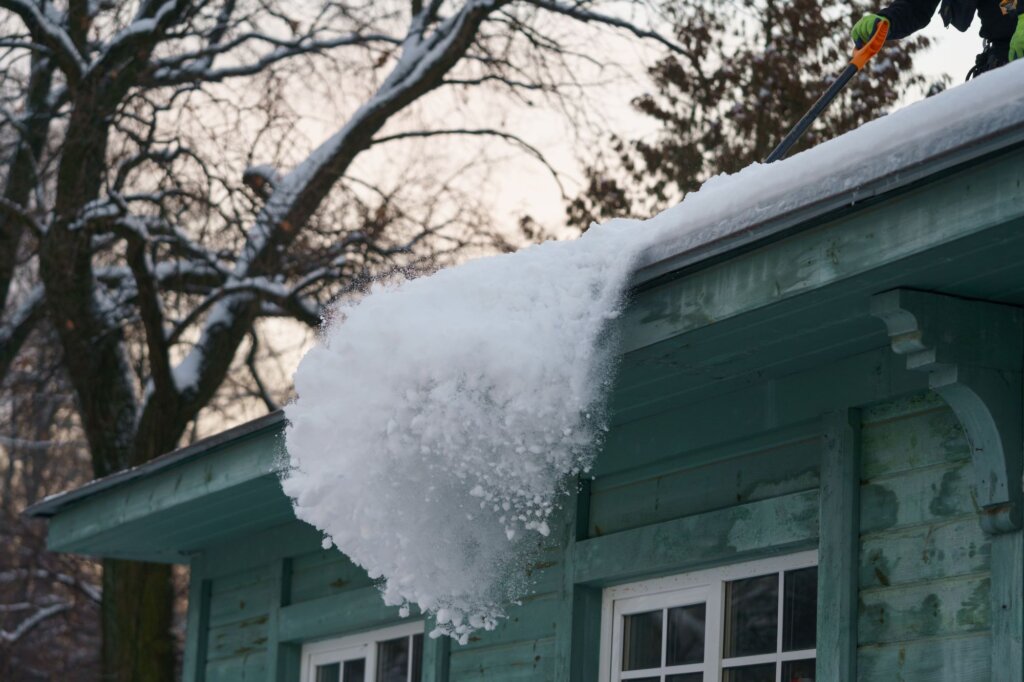As the temperatures begin to drop, it’s important to make sure your home is ready to withstand the winter chill. Winterizing your home not only keeps you warm and cozy indoors, but it can also prevent expensive repairs that are common during the colder months. Here are seven essential steps you can take to prepare your home for cold weather.
1. Seal Windows and Doors
Even small gaps around windows and doors can let in cold air and force your heating system to work harder. Walk through your home on a breezy day and check for drafts.
- Use weatherstripping or caulk to seal gaps around window and door frames.
- Install or replace door sweeps to block cold air at the bottom of exterior doors.
- Consider using thermal curtains to add an extra layer of insulation and keep warmth inside during the coldest nights.
A properly sealed home feels more comfortable and can reduce heating costs by up to 10 percent.
2. Inspect and Clean Gutters
Gutters play a key role in protecting your home from water damage. When they’re clogged with leaves or debris, melting snow has nowhere to go and can freeze, creating heavy ice dams that damage your roof and walls.
Before winter sets in:
- Clear gutters and downspouts of leaves, twigs, and dirt.
- Run water through them to make sure everything drains properly.
- Check for sagging or loose sections that could worsen under snow weight.
Installing gutter guards is another smart move if you want to cut down on future cleanings.

3. Prepare Your Heating System
Your heating system is the heart of your home during winter. A professional inspection can make sure it runs efficiently when you need it most.
- Schedule a tune-up with a certified HVAC technician.
- Replace filters every one to three months to keep airflow strong and clean.
- If you use a programmable thermostat, set lower temperatures while you’re asleep or away to save energy.
Don’t forget to test your smoke and carbon monoxide detectors and change the batteries as needed.
4. Protect Your Pipes
Frozen pipes are a common and expensive winter issue. Insulating them is one of the easiest ways to prevent freezing and bursting.
- Insulate exposed pipes in basements, crawl spaces, attics, or garages
- Disconnect garden hoses and shut off outdoor faucets.
- On extremely cold nights, let indoor faucets drip slightly to relieve pressure and keep water moving.
If you’re traveling for an extended period, keep the heat at least 55°F inside to protect your plumbing.
5. Check Your Roof
Think of your roof as your home’s first line of defense against snow, ice, and cold rain. Give it a careful inspection before winter storms arrive.
- Look for cracked, curling, or missing shingles and have them replaced.
- Examine the flashing around chimneys, vents, and skylights for gaps that could lead to leaks.
- If your roof is older or prone to ice buildup, consider hiring a professional to assess its condition.
A little preventative care now can extend your roof’s lifespan and prevent interior water damage.
6. Clean and Store Outdoor Furniture
Outdoor furniture, grills, and garden tools need care before freezing weather hits.
- Clean and dry furniture thoroughly before storing it in a shed, garage, or covered area.
- Protect larger pieces with waterproof covers if storage space is limited.
- Drain water from hoses and sprinkler systems to prevent freezing damage.
This simple step keeps your outdoor gear in great shape for spring.
7. Check Your Home’s Insulation
Good insulation helps maintain even temperatures throughout your home and prevents heat from escaping through the attic or walls.
- Inspect insulation in attics, crawl spaces, and around ductwork.
- Consider adding more insulation if you notice cold spots or rising energy bills.
- Don’t forget about the garage. If it’s attached, insulating it can make a big difference in overall comfort.
You can also use draft stoppers along the base of interior doors leading to unheated areas.
8. Maintain Your Fireplace
If you have a fireplace, regular maintenance is important for proper functionality and safety during the winter.
- Schedule a professional chimney sweep to remove soot and creosote buildup.
- Check that your damper opens, closes, and seals properly.
- If you use a gas fireplace, have the connections and pilot light inspected by a qualified technician.
Always keep a fire extinguisher nearby, and never leave a fire unattended.
Bonus Tip: Test Home Safety Devices
Winter means more time indoors and heavier use of heating equipment. Take a few minutes to test and maintain safety devices:
- Check smoke and carbon monoxide detectors monthly.
- Replace batteries twice a year (an easy reminder is when clocks change for daylight saving time).
- Review your fire escape plan with everyone in the home.
Frequently Asked Questions
How early should I start winterizing my home?
It’s best to start in early fall, before temperatures consistently drop below freezing. This gives you time to schedule inspections and handle outdoor maintenance before the weather turns harsh.
What’s the most important part of winter prep?
While every home is different, sealing drafts and maintaining your heating system provide the biggest comfort and energy savings.
Do smart thermostats really save money?
Yes. Smart and programmable thermostats can reduce heating costs by automatically lowering the temperature when you’re away or asleep.
Is professional help worth it for winterizing?
For complex systems like HVAC, roofs, or chimneys, professional inspections are a smart investment that can prevent major damage and costly repairs later.
Key Takeaways
A little preparation can be extremely beneficial when it comes to keeping your home safe and cozy during the winter months. Be proactive and seal any drafts, protect your pipes, check your roof, and maintain your heating system. Don’t wait until it’s too late!
This article is meant for informational purposes only and does not contain professional home advice.